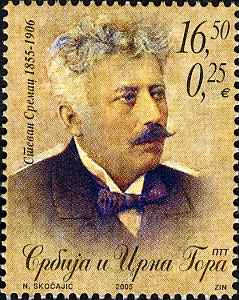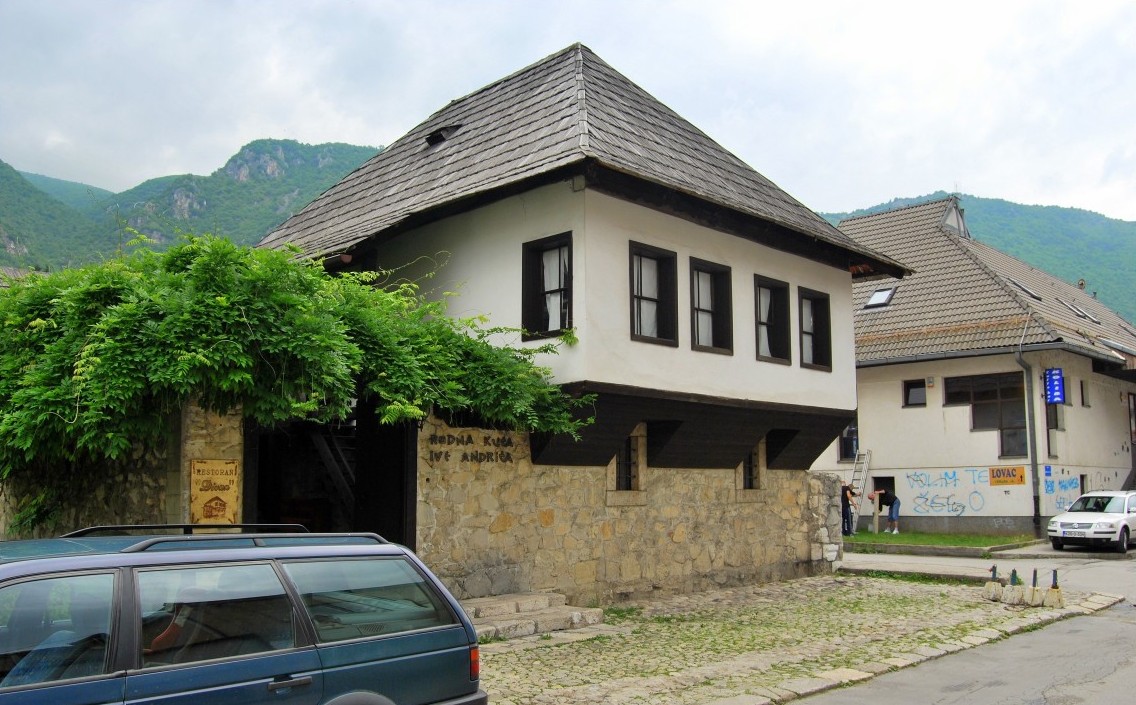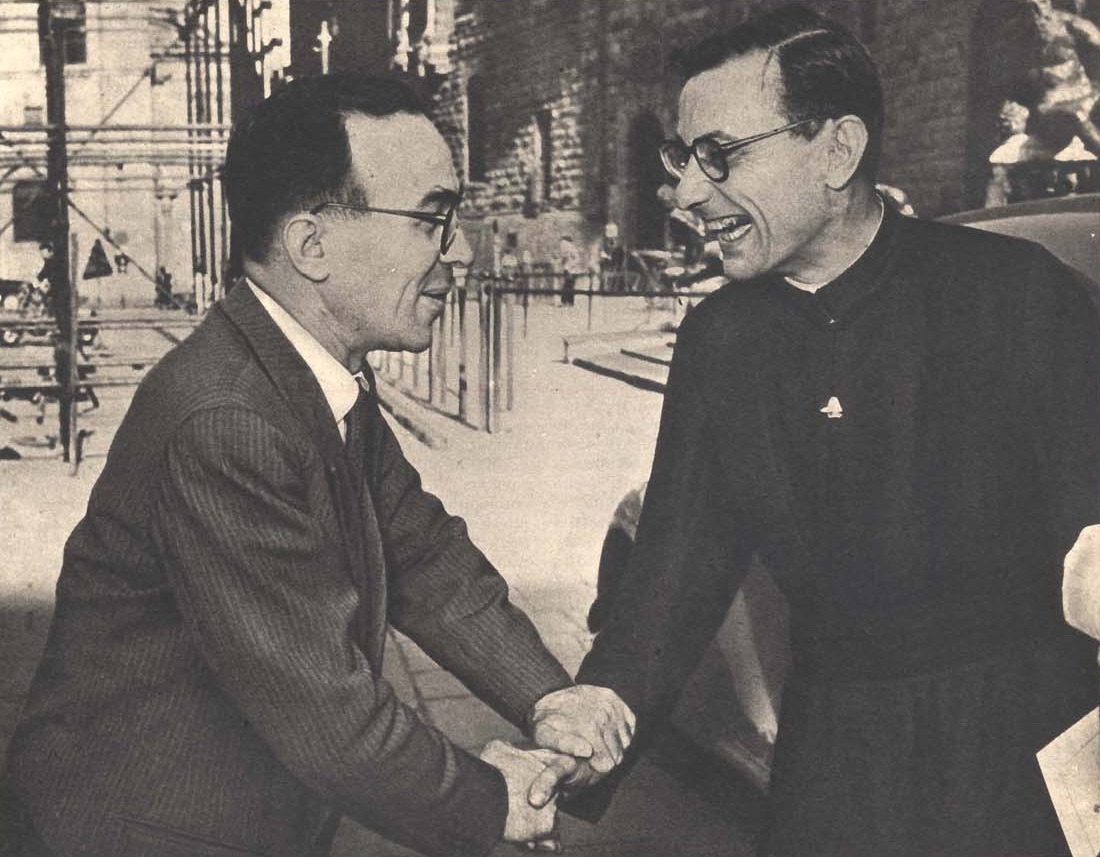|
Aleksandar Gatalica
Aleksandar Gatalica ( sr-cyr, Александар Гаталица; born 1964) is a Serbian writer, critic and translator, best known for his novel ''The Great War'', for which he won the NIN Award for best Serbian novel of the year. His works has been translated in more than ten languages. Biography Gatalica was born in 1964 in Belgrade, where he graduated world literature with Old Greek at Faculty of Philology, University of Belgrade. He worked as editor of the Pages on world literature (''Danas'' daily), editor of Blic knjiga publishing company, editor of Serbian PEN Centre editions, art director of Madlenianum Opera and Theatre and first president of National Library of Serbia Foundation. Gatalica is also noted as editor of several anthologies in Serbian and other languages. A noted translator, Gatalica translated works of authors such as Aeschylus, Sophocles, Euripides and pioneerly translatated great part of ancient poets, such as: Sappho, Mimnermus, Solon, Archilochus, ... [...More Info...] [...Related Items...] OR: [Wikipedia] [Google] [Baidu] |
:Template:Infobox Writer/doc
Infobox writer may be used to summarize information about a person who is a writer/author (includes screenwriters). If the writer-specific fields here are not needed, consider using the more general ; other infoboxes there can be found in :People and person infobox templates. This template may also be used as a module (or sub-template) of ; see WikiProject Infoboxes/embed for guidance on such usage. Syntax The infobox may be added by pasting the template as shown below into an article. All fields are optional. Any unused parameter names can be left blank or omitted. Parameters Please remove any parameters from an article's infobox that are unlikely to be used. All parameters are optional. Unless otherwise specified, if a parameter has multiple values, they should be comma-separated using the template: : which produces: : , language= If any of the individual values contain commas already, add to use semi-colons as separators: : which produces: : , ps ... [...More Info...] [...Related Items...] OR: [Wikipedia] [Google] [Baidu] |
Archilochus
Archilochus (; grc-gre, Ἀρχίλοχος ''Arkhilokhos''; c. 680 – c. 645 BC) was a Greek lyric poet of the Archaic period from the island of Paros. He is celebrated for his versatile and innovative use of poetic meters, and is the earliest known Greek author to compose almost entirely on the theme of his own emotions and experiences. Biography A considerable amount of information about the life of Archilochus has come down to the modern age via his surviving work, the testimony of other authors, and inscriptions on monuments, yet it all needs to be viewed with caution – the biographical tradition is generally unreliable and the fragmentary nature of the poems does not really support inferences about his personal history. The vivid language and intimate details of the poems often look autobiographical yet it is known, on the authority of Aristotle, that Archilochus sometimes role-played. The philosopher quoted two fragments as examples of an author speaking in somebo ... [...More Info...] [...Related Items...] OR: [Wikipedia] [Google] [Baidu] |
Writers From Belgrade
A writer is a person who uses written words in different writing styles and techniques to communicate ideas. Writers produce different forms of literary art and creative writing such as novels, short stories, books, poetry, travelogues, plays, screenplays, teleplays, songs, and essays as well as other reports and news articles that may be of interest to the general public. Writers' texts are published across a wide range of media. Skilled writers who are able to use language to express ideas well, often contribute significantly to the cultural content of a society. The term "writer" is also used elsewhere in the arts and music, such as songwriter or a screenwriter, but also a stand-alone "writer" typically refers to the creation of written language. Some writers work from an oral tradition. Writers can produce material across a number of genres, fictional or non-fictional. Other writers use multiple media such as graphics or illustration to enhance the communication of thei ... [...More Info...] [...Related Items...] OR: [Wikipedia] [Google] [Baidu] |
Serbian Novelists
Serbian may refer to: * someone or something related to Serbia, a country in Southeastern Europe * someone or something related to the Serbs, a South Slavic people * Serbian language * Serbian names See also * * * Old Serbian (other) * Serbians * Serbia (other) * Names of the Serbs and Serbia Names of the Serbs and Serbia are terms and other designations referring to general terminology and nomenclature on the Serbs ( sr, Срби, Srbi, ) and Serbia ( sr, Србија/Srbija, ). Throughout history, various endonyms and exonyms have bee ... {{Disambiguation Language and nationality disambiguation pages ... [...More Info...] [...Related Items...] OR: [Wikipedia] [Google] [Baidu] |
Petar Kočić
Petar Kočić ( sr-Cyrl, Петар Кочић; 29 June 1877 – 27 August 1916) was a Serbs of Bosnia and Herzegovina, Bosnian Serb writer, activist and politician. Born in rural northwestern Bosnia (region), Bosnia in the final days of Ottoman Empire, Ottoman rule, Kočić began writing around the turn of the twentieth century, first poetry and then prose. While a university student, he became politically active and began agitating for agrarian reforms within Bosnia and Herzegovina, which had been occupied by Austria-Hungary following the Ottomans' withdrawal in 1878. Other reforms that Kočić demanded were freedom of the press and freedom of assembly, which were denied under Austria-Hungary. In 1902, Kočić published his first short story collection. He published two more short story collections in 1904 and 1905, and subsequently adapted one of his most successful short stories, ''The Badger on Trial'', for the stage. Kočić subsequently led several demonstrations in S ... [...More Info...] [...Related Items...] OR: [Wikipedia] [Google] [Baidu] |
Dejan Medaković
Dejan Medaković ( sr-cyr, Дејан Медаковић; 7 July 1922 – 1 July 2008) was a Serbian art historian, writer and academician. Medaković had served as President of the Serbian Academy of Sciences and Arts from 1998 to 2003, as Dean of the University of Belgrade Faculty of Philosophy (1971–1973), and was a member of the Matica srpska as well as other scholarly associations. Life Dejan Medaković was born on 7 July 1922 in Zagreb (then the Kingdom of the Serbs, Croats and Slovenes (now Croatia) in an ethnic Serb family. His father, Đorđe Medaković, was an economist; his mother, Anastazija, a housewife. His paternal grandfather, Bogdan Medaković, had been a political leader of Serbs in Croatia during the Austro-Hungarian reign, president of the Serb Independent Party and president of the Croat-Serb Coalition, and Speaker of the Croatian Sabor from 1908 to 1918. Dejan Medaković's great-grandfather Danilo had lived in the Kingdom of Serbia and held various posi ... [...More Info...] [...Related Items...] OR: [Wikipedia] [Google] [Baidu] |
Stevan Sremac
Stevan Sremac ( sr-cyr, Стеван Сремац, ; 11 November 1855 – 13 August 1906) was a Serbian realist and comedy writer. He is considered one of the best truly humorous Serbian writers. Biography Stevan Sremac was born in Senta in Bačka region (then part of the Austrian Voivodeship of Serbia and Banat of Temeschwar) on 11 November 1855. He was of Aromanian ancestry. He spent his early childhood in the city of his birth, and moved to Belgrade to study after his parents died. While still a university student, he joined the Serbian Army and participated in the 1876 and 1877–1878 wars as a volunteer. In 1878 he graduated from Belgrade's Grande École (''Velika škola'') in philosophy and history. He became a teacher, working in this profession for the rest of his life—in the southern Serbia's cities of Pirot, Niš and Belgrade. His personal relations with his pupils were of singularly close and affectionate nature, and the charm of his social gifts and genial chara ... [...More Info...] [...Related Items...] OR: [Wikipedia] [Google] [Baidu] |
Umberto Saba
Umberto Saba (9 March 1883 – 26 August 1957) was an Italian poet and novelist, born Umberto Poli in the cosmopolitan Mediterranean port of Trieste when it was the fourth largest city of the Austro-Hungarian Empire. Poli assumed the pen name "Saba" in 1910, and his name was officially changed to Umberto Saba in 1928. From 1919 he was the proprietor of an antiquarian bookshop in Trieste. He suffered from depression for all of his adult life. Life and career Saba's Christian father, 29-year-old Ugo Edoardo Poli, converted to Judaism in order to marry 37-year-old Felicita Rachele Cohen in July 1882. Felicita was one month pregnant with Umberto at the time of the wedding. Ugo abandoned his new wife and faith before Umberto was born and the child was raised first by a Slovene Catholic wet-nurse, Gioseffa Gabrovich Schobar ("Peppa"), and her husband, who had just lost a child, and from 1887 onwards by his mother, in her sister Regina's home, though Umberto maintained a close lifelon ... [...More Info...] [...Related Items...] OR: [Wikipedia] [Google] [Baidu] |
Meša Selimović
Mehmed "Meša" Selimović (; ; 26 April 1910 – 11 July 1982) was a Yugoslav writer, whose novel '' Death and the Dervish'' is one of the most important literary works in post-World War II Yugoslavia. Some of the main themes in his works are the relations between individuality and authority, life and death, and other existential problems. Biography Selimović was born to a prominent Bosnian Muslim family on 26 April 1910 in Tuzla, Bosnia and Herzegovina, where he graduated from elementary school and high school. In 1930, he enrolled to study the Serbo-Croatian language and literature at the University of Belgrade Faculty of Philology and graduated in 1934. His lecturers included Bogdan Popović, Pavle Popović, Vladimir Ćorović, Veselin Čajkanović, Aleksandar Belić and Stjepan Kuljbakin. In 1936, he returned to Tuzla to teach in the gymnasium that today bears his name. At that time he participated in the Soko athletic organisation. He spent the first two years of the S ... [...More Info...] [...Related Items...] OR: [Wikipedia] [Google] [Baidu] |
Ivo Andrić
Ivo Andrić ( sr-Cyrl, Иво Андрић, ; born Ivan Andrić; 9 October 1892 – 13 March 1975) was a Yugoslav novelist, poet and short story writer who won the Nobel Prize in Literature in 1961. His writings dealt mainly with life in his native Bosnia under Ottoman rule. Born in Travnik in Austria-Hungary, modern-day Bosnia and Herzegovina, Andrić attended high school in Sarajevo, where he became an active member of several South Slav national youth organizations. Following the assassination of Archduke Franz Ferdinand in June 1914, Andrić was arrested and imprisoned by the Austro-Hungarian police, who suspected his involvement in the plot. As the authorities were unable to build a strong case against him, he spent much of the war under house arrest, only being released following a general amnesty for such cases in July 1917. After the war, he studied South Slavic history and literature at universities in Zagreb and Graz, eventually attaining his PhD. in Graz in 1924 ... [...More Info...] [...Related Items...] OR: [Wikipedia] [Google] [Baidu] |
Giorgio La Pira
Giorgio La Pira, TOSD (Raimondo in religious life; 9 January 1904 – 5 November 1977) was an Italian Catholic politician who served as the Mayor of Florence. He also served as deputy of the Christian Democrats and participated in the assembly that wrote the Italian Constitution following World War II. In his public and private life he was a tireless champion of peace and human rights who worked for the betterment of the poor and disenfranchised. La Pira belonged to the Third Order of Saint Dominic. From 1934 until his death he lived in the San Marco complex. He was a staunch advocate for peace and made several trips to the East to places such as China and Russia which were sometimes deemed to be controversial in the Cold War era. Those trips were undertaken to discuss peace ventures and ends to conflict with La Pira also prioritizing ecumenism as a reason for visiting Moscow where he often met with members of the Russian Orthodox Church. La Pira's cause for sainthood opened ... [...More Info...] [...Related Items...] OR: [Wikipedia] [Google] [Baidu] |
Miloš Crnjanski
Miloš Crnjanski ( sr-cyr, Милош Црњански, ; 26 October 1893 – 30 November 1977) was a Serbian writer and poet of the expressionist wing of Serbian modernism, author, and a diplomat. Biography Crnjanski was born in Csongrád (modern-day Hungary), to an impoverished family which moved in 1896 to Temesvár (modern-day Timișoara, Romania). He completed the elementary school in Pančevo, and Grammar school in Timișoara. Then he started attending the Export academy in Rijeka in 1912, and in the autumn of the following year he started studying mathematics and philosophy in Vienna. At the beginning of World War I, Crnjanski was persecuted as part of the general anti-Serbian retribution of Austria to Princip's assassination in Sarajevo. Instead of being sent to jail, he was drafted to the Austro-Hungarian Army and sent to Galician front to fight against the Russians – where he was wounded in 1915. Crnjanski convalesced in a Vienna war hospital, although just before ... [...More Info...] [...Related Items...] OR: [Wikipedia] [Google] [Baidu] |






